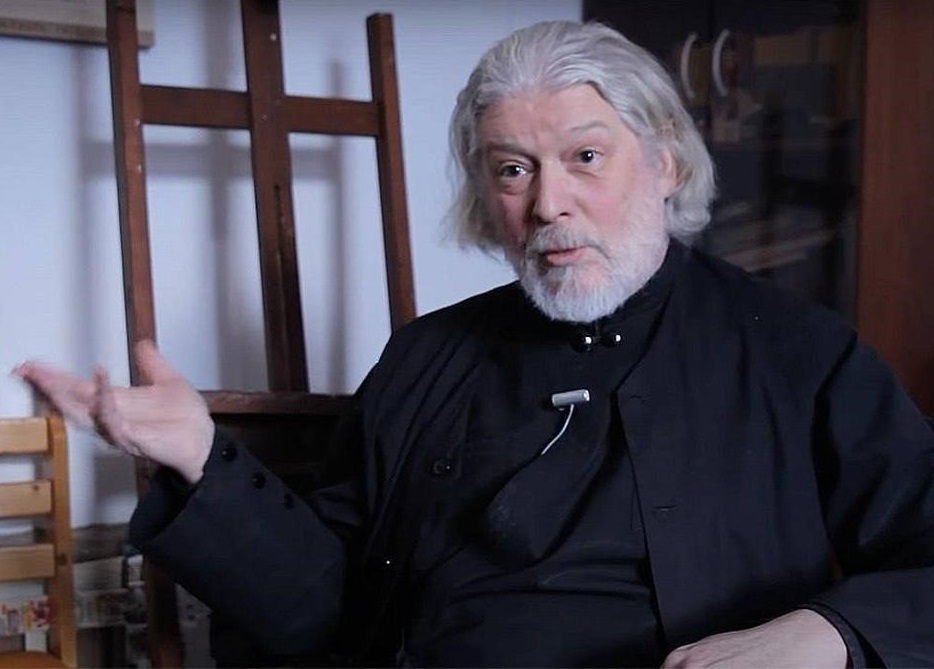Constantinople, the refuge of Russia's anti-war priests
Patriarch Bartholomew has welcomed into his clergy Fr. Aleksej Uminskij, reduced to the lay state by Patriarch Kirill for refusing to recite war prayers. He had already done so with Russian Orthodox priests who refused to support the war. Moscow does not recognise Constantinople's right to rehabilitate expelled priests, which the Ecumenical Patriarchate instead claims as a tradition of ecclesiastical 'last resort' from the earliest times.
Moscow (AsiaNews) - With the reception in recent days of the Russian priest Aleksej Uminsky, reduced to the lay state by the Patriarch of Moscow Kirill for refusing to recite the war prayers, the Patriarchate of Constantinople definitively affirms itself as the lifeline of the pacifist clergy, ousted from the Russian Church since the beginning of the invasion of Ukraine. The paradox is that Patriarch Bartholomew had decided in 2018 to dissolve the Russian European exarchate, linked to the Greeks since the Bolshevik revolution to welcome the priests in exile from the atheist power. They wanted to completely distance themselves from the Russians in view of the approval of Ukrainian autocephaly, and now as a result of the war against Ukraine a new “Constantinopolitan Russian clergy” is being created.
Uminsky was included in the group of Russian Orthodox priests in Lithuania who refused the Moscow Patriarchate's support for the war, in turn ousted by Metropolitan Innokenty (Vasil'ev) of Vilnius, who hesitated on the issue for a long time and then submitted to Kirill, avoiding receiving the anathema. The Russian Church itself, in its history, had always refused excommunication for "political reasons"; we remember the sensational case of Metropolitan Arsenij (Malevič), rehabilitated by the Council of 1917-18 held during the revolution, who had been deprived of the priestly order at the end of the 18th century on the initiative of Tsarina Catherine II for her protests against the confiscation of ecclesiastical properties.
Now, however, the patriarchy adopts Putin's laws against "foreign agents" even internally, hunting down and punishing members who are too unbalanced towards the "enemies of the homeland". And Bartholomew no longer hesitates in welcoming them "under his omophorion", the patriarchal stole as they say for hierarchical authority in the East. In June last year he rehabilitated Father Ioann Koval, who in the prayer for Holy Russia had replaced the word "victory" with "peace", and now carries out his ministry in Antalya in Turkey. The Lithuanian priests had already been accepted the previous year, and now they organize themselves thanks to the hospitality of the Catholic churches, having been ousted by the Russian ones in Vilnius and the other cities of Lithuania.
Father Andrej Kordočkin, who served for years in Spain and is well known for his interventions in Novaya Gazeta, the Russian agency condemned as a "foreign agent", and on other platforms, also passed through Constantinople. Now he has moved to Germany and is taking part in the "Peace to all" project, which was created to help the priests expelled from the patriarchate of Moscow. The alternative to Moscow offered to Constantinople therefore becomes more direct and effective than the same exarchate of Paris reunited with Russian jurisdiction six years ago, and which in the years after the revolution had remained in a rather ambiguous condition.
Moscow does not recognize Constantinople's right to rehabilitate expelled priests, which the ecumenical patriarchate instead claims as a tradition of ecclesiastical "last resort" since ancient times. Furthermore, canonical diatribes in Orthodoxy are always difficult to unravel, appealing to the canons of often contradictory ancient councils, and without a common code of canon law as in the Catholic Church. In this case, however, the Greeks have an ace up their sleeve, citing the council of the "Hundred Chapters" of Moscow in 1551 under Ivan the Terrible, which in the history of the Russian Church is equivalent to that of Trent for the Catholics, and where it is stated clearly that "only the patriarch of Constantinople has the power to judge the bishops and priests of other patriarchates". The patriarchate of Moscow, which would be created in 1589, had not yet been established, and the conflict with the future Ukraine, prefigured by the Union of Kiev with Rome in 1596, had not yet begun.
Patriarch Bartholomew (Archontonis) is a Greek from the island of Imvros, which remained under Turkey, and is known as a sincere Turkish patriot, so much so that he received the rank of army officer after his military service in the 1960s. He also studied in Rome, Switzerland and Germany, has always had good relations with Catholics and the ecumenical world, and has governed the ecumenical patriarchate for over thirty years. Today he too becomes "father of the Russians" who do not accept the war, and at 84 years old he takes care of the future of a new Orthodoxy.







.png)










